Ukraine round-up: UK helps Ukraine in cyber war and Russian banker defies Putin
- Published
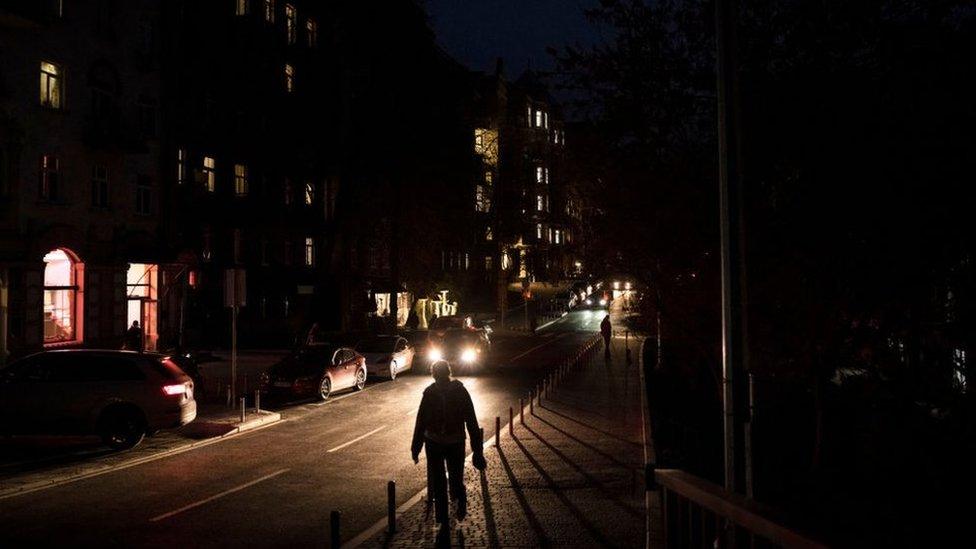
Kyiv is in partial darkness because of scheduled power cuts and restrictions
Water and electricity supplies in Kyiv have been restored, a day after they were disrupted by Russian missile strikes on key infrastructure sites across Ukraine.
Scheduled blackouts will continue to manage power demand, the city's mayor, Vitaliy Klitschko, said.
He also announced that 1,000 heating points would be set up for people to seek shelter from the cold during winter, in expectation of more power outages over the next few months.
The latest strikes followed an attack on Russia's Black Sea fleet in Crimea which Russia blames on Ukraine, although Kyiv has not commented.
Russia's President Vladimir Putin said Monday's strikes were partly in response to the Crimea attack. However, Moscow has been targeting Ukrainian infrastructure since before the Crimea attack took place.
We've got the latest from Kyiv and elsewhere in Ukraine here.

UK defends Ukraine against cyber-attacks
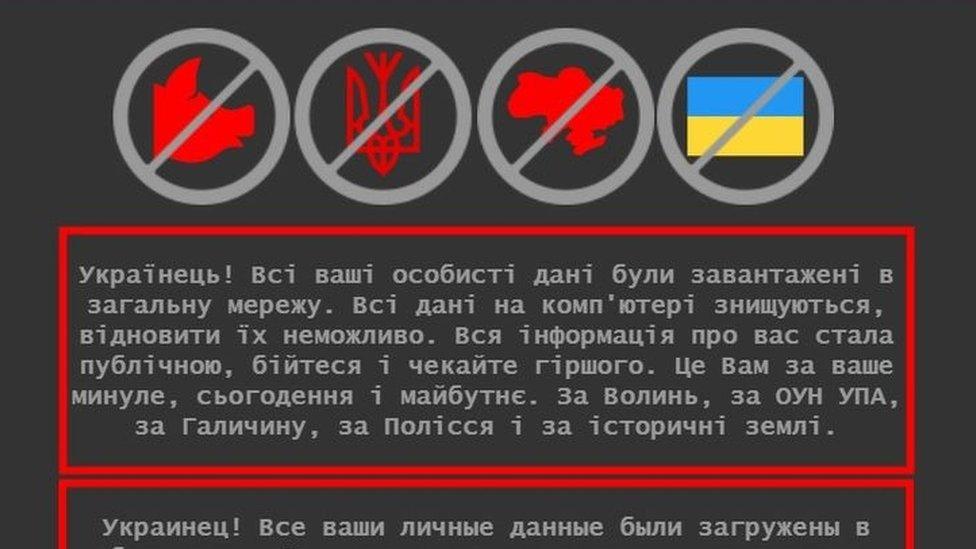
This threatening message appeared on Ukrainian government websites in January - Kyiv blamed Russia
Details have emerged about a secret UK programme to defend Ukraine against Russian cyber-attacks.
The £6m ($6.9m) package had been kept under wraps until now to protect operational security, officials say.
Ukraine has been subjected to unprecedented attacks from a range of Russian intelligence services, according to those involved in the programme.
"We've seen on a daily basis now the terrible images of the way that the electrical grid in Ukraine has been battered by ballistic strikes and drone strikes from the Russians - they face the same threat and same challenge in the cyber domain," UK Europe Minister Leo Docherty told the BBC.
Russia repeatedly denies claims it has carried out cyber attacks.
Read more here from our security correspondent Gordon Corera

Russian banker cuts ties with homeland
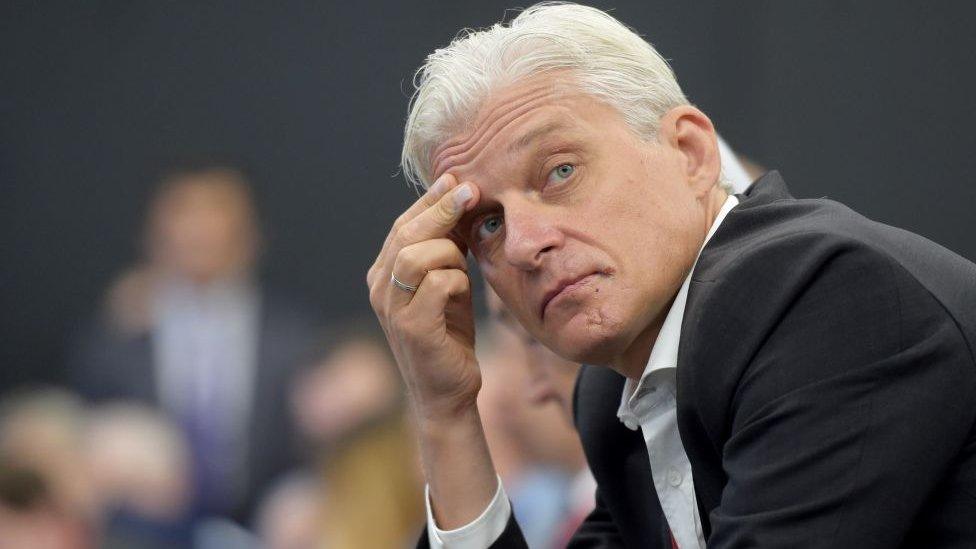
Oleg Tinkov's anti-Kremlin tirade is rare in the Russian business community
Billionaire Russian banker Oleg Tinkov has renounced his Russian citizenship, saying he refuses to be associated with a "fascist" country that invaded a peaceful neighbour.
The founder of the online Tinkoff bank is one of very few current Russian oligarchs to take a stand against the war but said he hoped he could set an example.
"I hope more prominent Russian businessmen will follow me, so it weakens Putin's regime and his economy, and put him [sic] eventually to defeat," he said in an Instagram post.
Mr Tinkov is believed to live in London but is subject to UK sanctions, as are many other Russian oligarchs.

'I said goodbye to my loved ones'
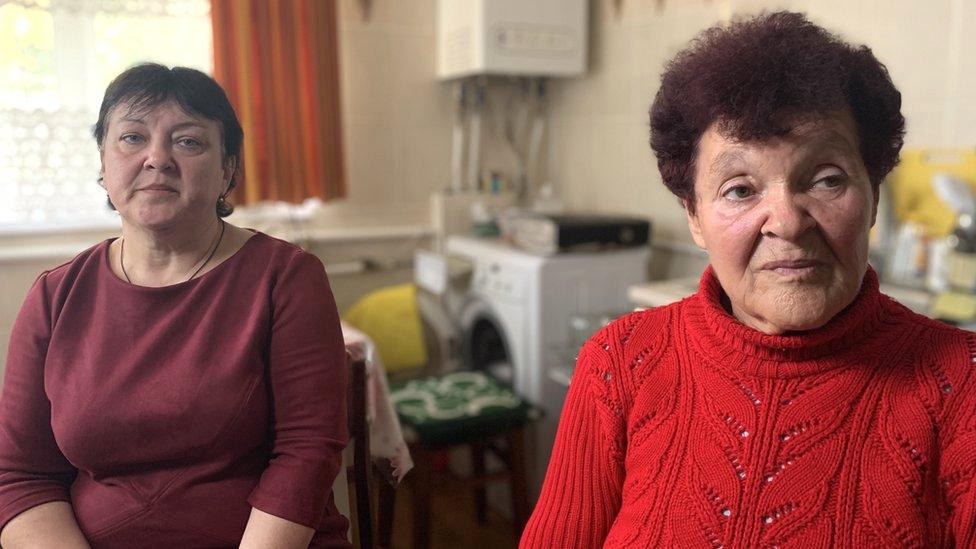
Liudmyla (R), with daughter Olha, says she did not think she would survive the night a Russian soldier entered her home
War can seem distant to many of us, especially after so many months of fighting.
But the BBC's Jeremy Bowen's recent journey across the east and south of Ukraine, hearing moving accounts from soldiers and civilians, serves to bring it up close - most notably with the harrowing story of 75-year-old grandmother Liudmyla.
The retired teacher described how she was viciously beaten and raped by a Russian soldier in her own home in an apparently unprovoked attack.
"I said goodbye to my children, my grandchildren, and great-grandchildren, I never thought I would stay alive," she said.
"Putin and the Russians will never be forgiven until the end of their world… for what they did to the Ukrainians. There will be no forgiveness."

'I was nearly starved'
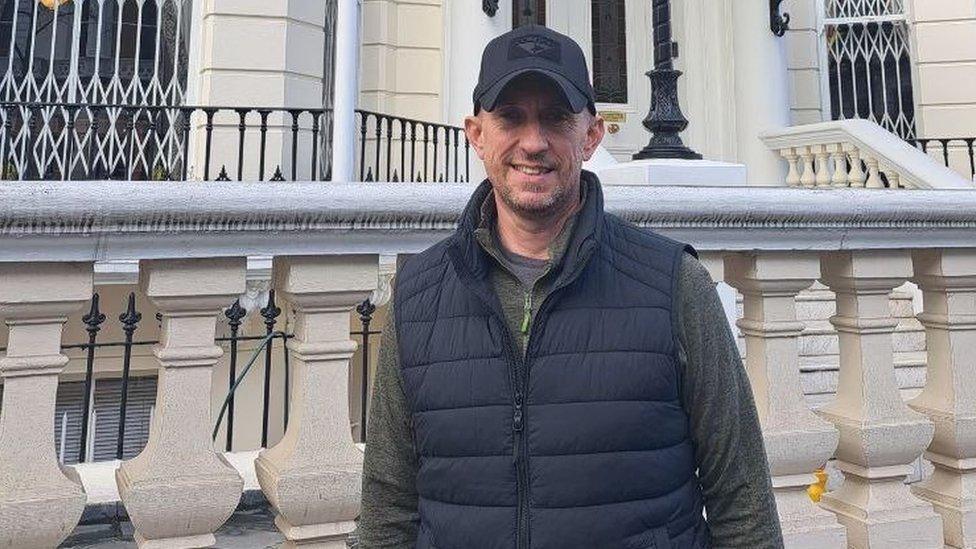
Shaun Pinner, pictured outside the Ukrainian embassy, said he would love to return to Ukraine
In September we reported that five British nationals captured by Russian forces in Ukraine had been released.
Now one of them, Shaun Pinner, has been talking about his ordeal.
The former British Army soldier, who fought with Ukrainian forces in Mariupol, says he nearly starved to death in captivity and was given only bread and water for about 50 days.
"We were treated badly - electrocuted, tasered, stabbed in the leg, pistol-whipped and taken to a black site," he said.
He and another former soldier, Aiden Aslin, were put on trial in the separatist Donetsk People's Republic and told they faced the death penalty, but were set free as part of an exchange deal.